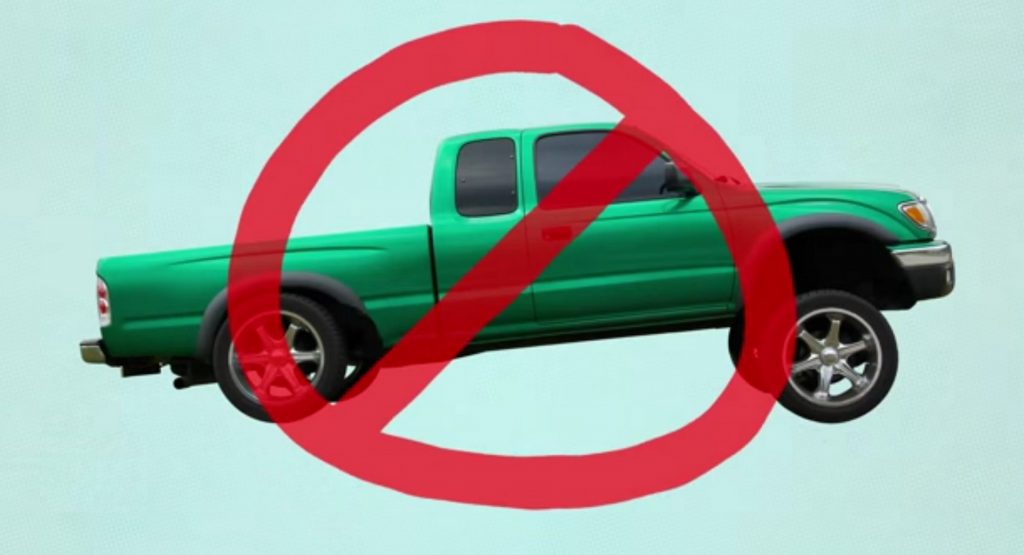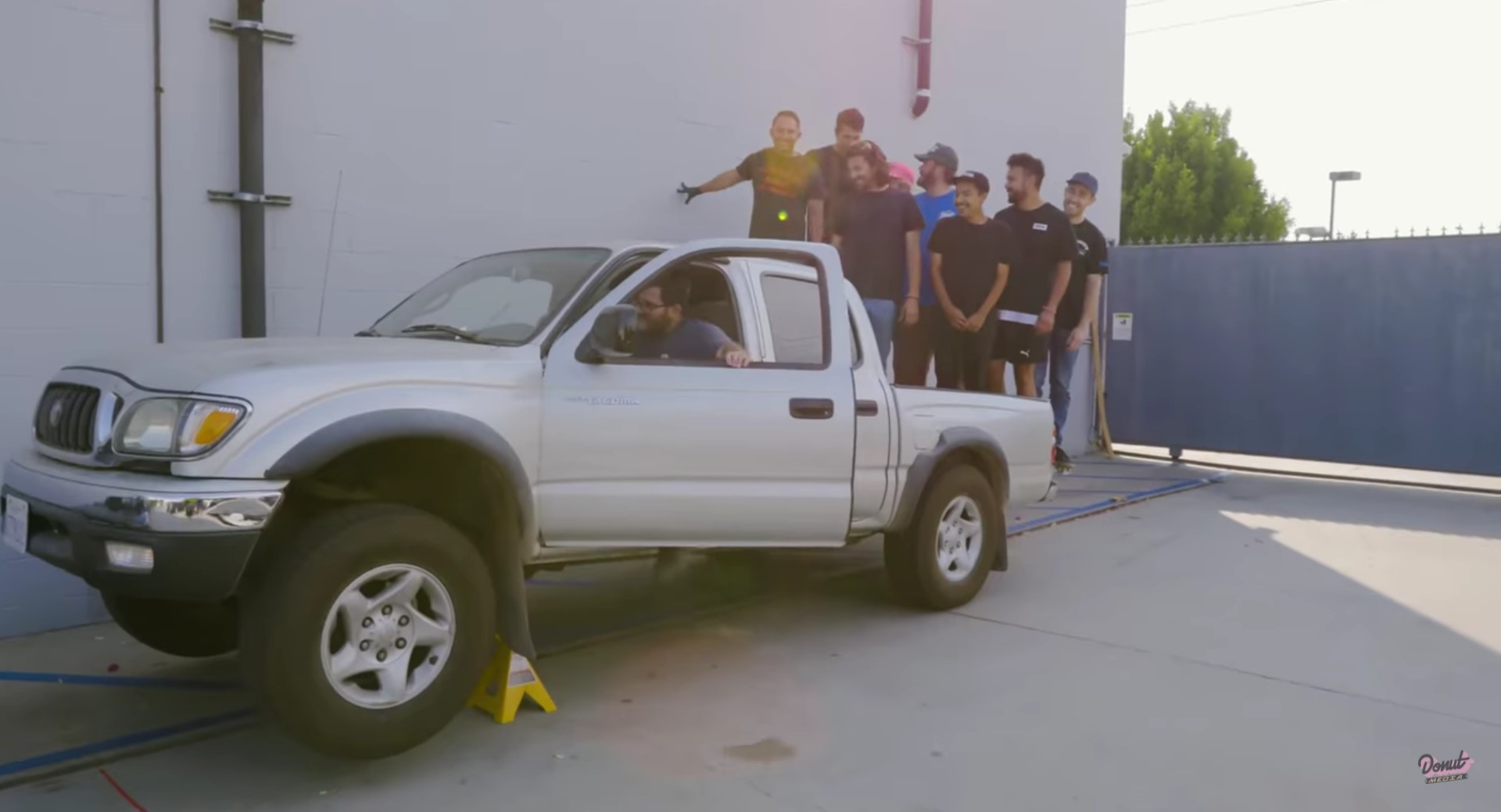Depending on where you live, you may know this trend by different names. I first heard it referred to as the Carolina Squat but, apparently, it’s also known as the Tennessee Tilt and the Cali Lean. Whatever the case, North Carolina wants to make it illegal.
North Carolina house bill 692 aims to ban the practice of lowering the rear end of a truck and raising the front end in the interest of public safety.
Per the bill, “A private passenger automobile shall not be modified or altered by (i) elevating the automobile more than 3 inches from the manufacturer’s specified height in the front and (ii) lowering the automobile more than 2 inches from the manufacturer’s specified height in the rear.”
Read Also: Ohio Senator Caught Driving On Zoom Call While House Introduced Bill To Ban Distracted Driving
To be sure, squatted trucks look unusual, and rolling down the road they feel like they might be unsafe. Donut Media, though, decided to ask what the hard evidence was behind the bill.
Host Nolan Sykes was told that the North Carolina General Assembly had been provided with a presentation from the North Carolina State Highway Patrol about squatted truck safety. But when he reached out to the NCSHP, they could provide no data.
“Unfortunately, the members who attended that hearing relied on their crass reconstructed knowledge and did not rely on records, powerpoints, documents, etc, to provide insight,” the NCSHP told Sykes in an email.
A separate report stated that North Carolina State Highway Patrol doesn’t track accidents relating to squatted trucks and hasn’t seen anything that stands out in terms of accident numbers. So what gives?
To test how much squatting impairs a driver’s ability to see, Donut simulated a lean with jack stands. They found that although the modification makes it harder to see a short car inches ahead of you, it wasn’t as much of an impairment as they expected.
Although I wouldn’t be too excited about being in that Miata (especially if it was nighttime and its headlights were on), requiring modifications to be safe and just outright banning certain forms of modification are two different things. Right now, it’s hard to know what, if any, data the North Carolina General Assembly was relying on when it proposed the bill to ban squatting in the name of improving public safety.









